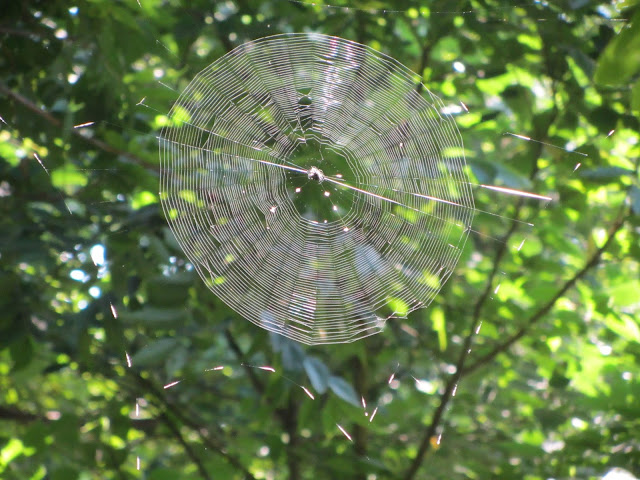To illustrate what I mean by potential, consider a waterfall.
Sure, you could point toward a mountain and say, "Look, there's a waterfall," as opposed to, say, a city bus or a unicorn or a bowl of breakfast cereal. But a waterfall's not really a "thing" but all manners of phenomena all expressing themselves in various ways at various times.
First, imagine what's above the waterfall, just beyond your line of sight. It might be a pool of water or it might be a raging creek. There's the potential for it to be either. On the other hand, it's also potentially a leaking aqueduct or even the copious tears of a crying giant. The potential is limited only by your imagination.
But potential goes beyond mere speculation. As the water falls over the cliff, it has the potential to create graceful veils or sheetlike curtains of water, or it may express itself as chaotic rivulets and random droplets. At different times, it might be either or both, or it may be one form in one area and a different form in another. The falling water has the potential to be expressed in myriad ways, and it's the conditions of flow, height, and morphology that control how the falling water appears. Following huge storms, the surging water is expressed differently than the weak trickle during a drought, and over geologic time, as the bedrock slowly erodes away, the shape, the height, even the location of the falls will change.
Consider the plunge pool at the bottom. It has the potential to be shallow or deep, cold or ice-cold, to have powerful currents and eddies or to be placid and still, to be clean and clear or to be full of floating wood and smelling like dead fish. Like the falls itself, it's constantly changing as conditions, both meteorological, hydrological, and geological, all change.
At any given moment, a waterfall has potential to behave and appear so many different ways, that it seems inadequate, almost disrespectful, to apply a one-size-fits-all term like "waterfall" to it. And since the so-called "waterfall" is so intimately a part of the cliff, which is intimately part of the mountain, and since the "waterfall" is also a part of the stream and a product of gravity, which is caused by planetary mass, which is composed of accreted stardust, there really are no boundaries around which we can say that what is inside is "waterfall" and what is outside is "not waterfall."
A "waterfall" is an expression of potential, and since it has no boundaries, the whole universe is potential as well.







































